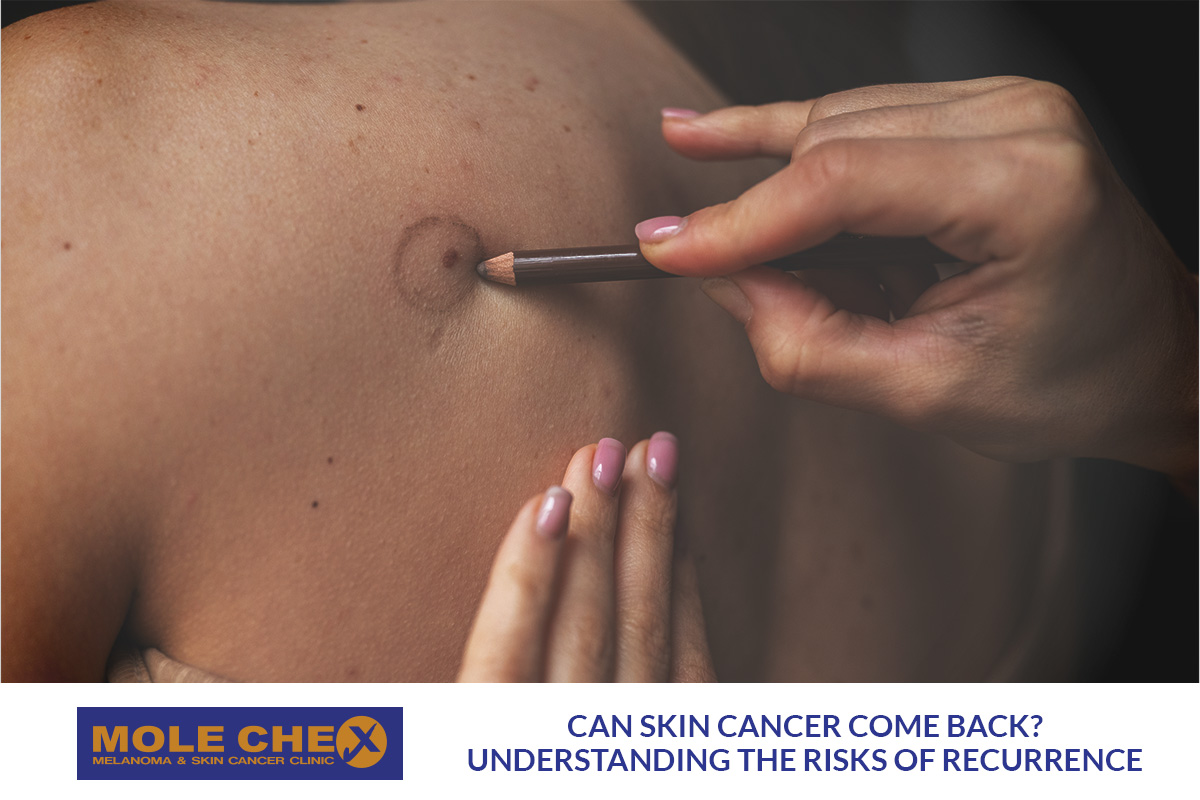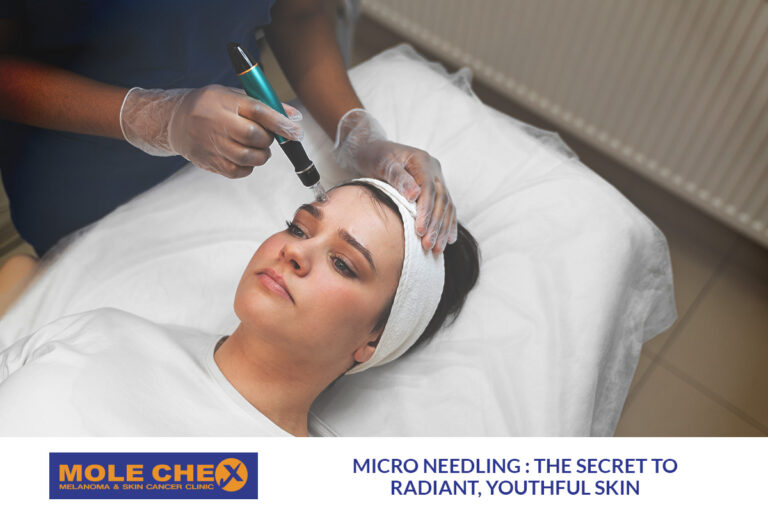Can Skin Cancer Come Back? Understanding the Risks of Recurrence

The high levels of ultraviolet (UV) radiation in Australia make skin cancer a major public health concern. Feeling anxious about a recurrence of treated skin cancer is normal. Read on to learn about the chances of skin cancer coming back, what can increase those chances, and why it’s crucial to get checkups to keep an eye on your skin.
Key Points We Will Discuss:
- Recurrence rates of different skin cancers
- Factors that increase the risk of recurrence
- Monitoring your skin post-treatment
- Preventative measures to reduce recurrence risks
- How Molechex supports your ongoing skin health
Understanding Skin Cancer Recurrence
Skin cancer recurrence refers to the return of cancer after treatment and initial clearance. Recurrence rates can vary significantly depending on the type of skin cancer:
- Basal Cell Carcinoma (BCC):
The most common form of skin cancer, BCC generally doesn’t spread to other parts of the body. However, it can recur at the original site, especially if it was not completely removed. Around 30% to 50% of people may develop another BCC within five years of their first occurrence. - Squamous Cell Carcinoma (SCC):
More aggressive than BCC, SCC carries a higher risk of recurrence, particularly if the original tumour was large or deeply invasive. An estimated 8% to 10% of patients might experience a recurrence after treatment, with higher risks associated with less invasive treatments. - Melanoma:
The most dangerous type of skin cancer, melanoma can recur even after seemingly successful treatment. The risk is particularly high if the original melanoma was detected at a more advanced stage, had ulcerated, or was thicker than 1 mm. In some cases, melanoma can reappear years later, making lifelong monitoring essential.
Factors That Increase the Risk of Recurrence
Several factors can increase the likelihood of skin cancer returning:
- Incomplete Removal:
If any cancerous cells remain after treatment, the chances of recurrence are higher. Mohs surgery, known for its precision, offers high cure rates by removing cancerous tissue layer by layer. However, no treatment method can guarantee complete elimination. - Aggressive Cancer Characteristics:
Tumours that are ulcerated, large, or poorly differentiated are more likely to come back. People with a history of multiple skin cancers or those with compromised immune systems are also at greater risk. - Sun Exposure:
Ongoing exposure to UV radiation, particularly in a sun-rich environment like Australia, significantly increases the risk of recurrence. Protecting your skin from the sun is a critical component of post-treatment care.
Monitoring and Prevention
After undergoing treatment for skin cancer, consistent monitoring and preventative measures are crucial:
- Regular Skin Checks: Both self-examinations and professional skin checks are vital. These help detect new or recurring skin cancers at their earliest stages when they are most treatable. Depending on your risk factors, it’s recommended to have a professional skin check every six to twelve months.
- Sun Protection: Regular use of broad-spectrum sunscreen, wearing protective clothing, and avoiding sun exposure during peak UV times are essential practices. Even small amounts of daily sun exposure can elevate the risk of recurrence.
- Healthy Lifestyle Choices: Adopting a healthy diet, avoiding smoking, and managing stress can bolster your immune system, potentially lowering the risk of recurrence.
How Molechex Can Help
At Molechex, we understand the importance of regular skin checks in preventing the recurrence of skin cancer. By keeping up with our thorough skin examinations and follow-up care, our trained staff at Molechex can help you avoid skin cancer recurrence. Having your skin checked regularly gives you peace of mind and is essential to your skin’s long-term health.
Conclusion
While the possibility of skin cancer returning is a serious concern, it is not a certainty. By understanding the factors that contribute to recurrence and taking proactive steps, you can significantly reduce your risk. Regular skin checks, vigilant sun protection, and maintaining a healthy lifestyle are key strategies to keep skin cancer at bay. Staying informed and proactive is the best way to manage your health and continue enjoying life under the Australian sun.
Learn more by reading other articles :



